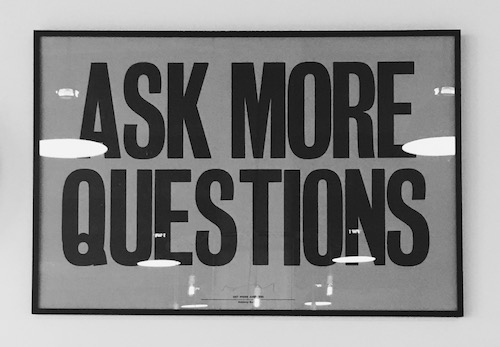Three Keys to Better Management, Right Now
by Kelly Riggs
I think people would agree that becoming a great manager requires a certain amount of time.
Very few people are thrust into a management position and do it exactly right from the jump, avoiding the myriad of challenges and speed bumps that inevitably confront those who lead employees.
No, it takes time to develop critical leadership skills. But lots of hard work and dedication can help to speed this particular process up. Not only that, but business leaders may decide to incorporate a skills competency management software, from somewhere similar to ProSymmetry (https://www.prosymmetry.com/) to help identify the key skills needed to progress through the ranks and to become a successful manager. It’s important to remember that this area shouldn’t be rushed though, especially if you want maximum results. Team management takes time, but there are goal-setting methodologies like OKR (Objectives and Key Results) that can be adapted to align, prioritize, concentrate, and gauge the results of the work your employers perform. You can read more about this software in Profit explain OKRs. As a manager, you may like the fact that in an OKR program, the personal goals and team goals are mostly aligned with the corporate priorities; this could help achieve their target goal on time. It takes time to acquire the experience that comes with learning from the mistakes we inevitably make. And, it takes time to create disciplined habits that characterize effective managers. It is also essential for managers to have great time management, so they can keep up with the demand of the business. There is now new technology that can help professionals to keep their time organized and avoid an issue due to poor timing. People could use the technology of Trello to do this, which is a personalized organizational website, click on the link to see how to use Trello.
On the other hand, there are a number of specific things you can do to make a difference right now. In fact, you can read this article, start practicing three simple skills, and become a much better manager, starting today.
The process is fairly simple. Almost without exception, inconsistent performance, or sub-par performance, is created by employees who are marginally engaged, if not disengaged. Disengagement is linked primarily to poor managerial leadership.
What constitutes poor managerial leadership? Well, that list can get pretty long, but the primary issues are poor communication and the failure to make employees feel appreciated or valued.
The simplest way to deal with these two very common issues is to open up and create meaningful dialogue with your employees. You can start by arranging virtual team building activities like icebreaker questions, games etc. if your team is working remotely. If in office, the same could be done in person as well. It is important to give mental health the same importance as physical health.
That said, unfortunately, managers almost always feel they have too much on their plates to waste time engaging in conversation with employees: Deadlines. Demanding customers. Budgets. Projects. Problems to be solved.
And that’s before lunch.
In the final analysis, taking the time to sit and chat with an employee is just not very high on the priority list when there are a dozen critical fires to put out at any one time.
Not to worry. The three secrets described below are simple to execute and, in the big scheme of things, will improve your management skills dramatically. More importantly, they may even free up some time, since employees generally do much better work when they are engaged.
Here are three keys to improving your management efforts right away:
No. 1: Find out exactly what your people need to succeed.
How? Very simple – just ask.
 It is amazing how few managers actually ask their employees what they need to be more effective in their jobs. In a 2011 Harvard Business Review article, authors Linda Hill and Kent Lineback suggested what they believe is the most important question a manager can ask employees: “What can I do to help you be more effective?”
It is amazing how few managers actually ask their employees what they need to be more effective in their jobs. In a 2011 Harvard Business Review article, authors Linda Hill and Kent Lineback suggested what they believe is the most important question a manager can ask employees: “What can I do to help you be more effective?”
If it’s not the most important question you can ask an employee, it has to be in the top two. Assuming you have some semblance of a relationship with your employees (Translation: they don’t have a small figurine on their desk with your name on it, full of thumbtacks or stick pins), they will typically be willing to share a thing or two that will really make a difference in how they perform.
To take this simple idea a step further, it could easily be the question you ask at every one-on-one meeting, before every project, or during every review. If you are serious about making your people more effective, you will ask the question and take great pains to deliver what they need.
No. 2: Give your people permission to push back.
One of the cornerstones of employee engagement is communication; in fact, it is probably THE cornerstone. Communication, however, means dialogue. It means a two-way conversation; a conversation where an employee feels comfortable offering ideas and opinions.
Sadly, many managers are not comfortable with that idea. They certainly aren’t comfortable with someone disagreeing with their ideas.
Caryl Stern, CEO of Unicef, doesn’t see things that way. She told New York Times Business Day columnist Adam Bryant that allowing her employees to challenge her thinking was a critical component in her success as a leader.
“I tell the people who work for me when I hire them: “If you work for me, you’re going to hear what I’m thinking. You can push back, and I’m going to listen when you push back.” My staff doesn’t have to worry, “Is she angry? Is she happy? Is she contemplating?” They know where they stand. They know what I want. They know what makes me happy. I know what they want.”
In a hierarchical relationship (teacher-student, manager-employee, etc.), meaningful dialogue has to be invited and encouraged. Make someone feel stupid and you will shut it down. Ignore other people’s ideas and the dialogue will fade away. But allow people to voice their ideas – rationally and respectfully – and you may improve performance in ways that you never considered.
News Flash: You may be the manager, but one thing is for sure – you don’t know everything.
No. 3: Be willing to challenge the status quo.
Most managers don’t want any part of this.
Why? Because challenging the status quo means change. Change is work. And there is already plenty to do without adding even more work.
But, although it is true that challenging the status quo may mean more work, failing to challenge the status quo can substantially limit a team’s effectiveness. That’s why successful CEOs consistently challenge the way things are done:
“In business, the big prizes are found when you can ask a question that challenges the corporate orthodoxy,” said Andrew Cosslett, the C.E.O. of the InterContinental Hotels Group. “In every business I’ve worked in, there’s been a lot of cost and value locked up in things that are deemed to be ‘the way we do things around here.’ So you have to talk to people and ask them, ‘Why do you do that?’”
At the same time, managers should take care to do this in a positive way rather than making employees feel as if they aren’t doing well. Asking this question right is all about the attitude with which you ask it.
On the other hand, this will often happen quite naturally just by adopting Secret No. 2. When employees feel comfortable pushing back, they will often point out things that could be done better, faster, or with less cost without being asked.
The traditional road to management rarely includes training. To set yourself apart among your peers, and to begin the process of increasing the level of employee engagement, exit the traditional management road and start practicing these three practical ideas.


